
Kitzbühel: The Alpine Jewel of Austria
Nestled in the heart of the Austrian Alps, Kitzbühel is a picturesque town that offers a perfect blend of natural beauty and rich history. Known for its world-class skiing, Kitzbühel attracts winter sports enthusiasts from around the globe. The town's charming medieval architecture, narrow cobblestone streets, and colorful buildings create an enchanting atmosphere that will captivate you at every turn. Beyond skiing, Kitzbühel boasts a variety of outdoor activities year-round. In the summer, the lush green meadows and towering peaks make it an ideal destination for hiking, mountain biking, and golfing. The pristine lakes and rivers provide opportunities for fishing and swimming, while the surrounding mountains offer breathtaking views and peaceful retreats. Kitzbühel is also a cultural hub, with a rich history dating back over 700 years. The town's museums and historic sites, such as the Kitzbühel Museum and the Church of Our Lady, offer a glimpse into its storied past. The local cuisine is a delightful mix of traditional Austrian dishes and modern culinary delights, making dining in Kitzbühel a memorable experience. Whether you're seeking adventure, relaxation, or a bit of both, Kitzbühel has something to offer every traveler.
Local tips in Kitzbühel
- Visit during the Hahnenkamm Races in January for an unforgettable skiing spectacle.
- Try the local specialty, Käsespätzle, at a traditional Austrian restaurant.
- Purchase a Kitzbühel Card for discounts on local attractions and public transportation.
- Explore the town on foot to fully appreciate its medieval charm and hidden gems.
- Take a cable car ride to the top of the Kitzbüheler Horn for panoramic views.
Kitzbühel: The Alpine Jewel of Austria
Nestled in the heart of the Austrian Alps, Kitzbühel is a picturesque town that offers a perfect blend of natural beauty and rich history. Known for its world-class skiing, Kitzbühel attracts winter sports enthusiasts from around the globe. The town's charming medieval architecture, narrow cobblestone streets, and colorful buildings create an enchanting atmosphere that will captivate you at every turn. Beyond skiing, Kitzbühel boasts a variety of outdoor activities year-round. In the summer, the lush green meadows and towering peaks make it an ideal destination for hiking, mountain biking, and golfing. The pristine lakes and rivers provide opportunities for fishing and swimming, while the surrounding mountains offer breathtaking views and peaceful retreats. Kitzbühel is also a cultural hub, with a rich history dating back over 700 years. The town's museums and historic sites, such as the Kitzbühel Museum and the Church of Our Lady, offer a glimpse into its storied past. The local cuisine is a delightful mix of traditional Austrian dishes and modern culinary delights, making dining in Kitzbühel a memorable experience. Whether you're seeking adventure, relaxation, or a bit of both, Kitzbühel has something to offer every traveler.
When is the best time to go to Kitzbühel?
Iconic landmarks you can’t miss
Bergbahn AG Kitzbühel - KitzSki
Experience the breathtaking beauty and exhilarating adventure of the Austrian Alps at KitzSki, where world-class skiing and outdoor activities await.
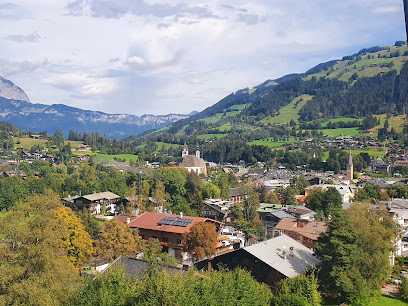
Wildpark Aurach
Experience the beauty of Austria's wildlife at Wildpark Aurach, where nature and adventure await in the heart of the Tyrolean Alps.
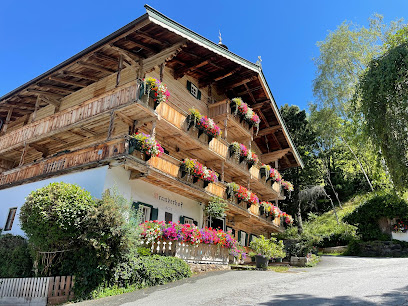
Alpenhaus Kitzbüheler Horn
Experience the breathtaking Kitzbüheler Horn at Alpenhaus, where adventure meets Alpine cuisine in a stunning mountain setting.
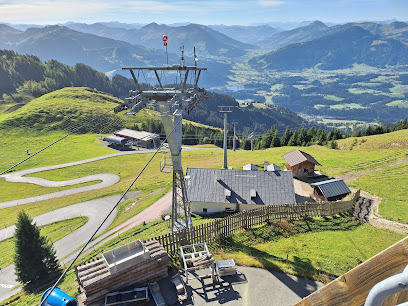
A-ROSA Kitzbühel
Experience luxury and adventure at A-ROSA Kitzbühel, where the beauty of the Alps meets world-class hospitality and outdoor fun.

Rosi's Sonnbergstuben - Rosi's Alm Kitzbühel
Experience the finest of Austrian cuisine at Rosi's Sonnbergstuben, a scenic restaurant in Kitzbühel with breathtaking views and a cozy atmosphere.
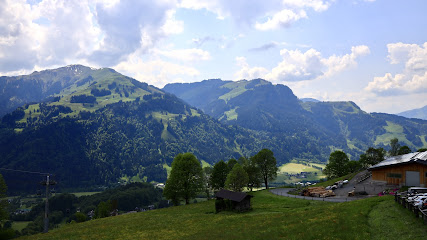
Lebenberg Schlosshotel-Kitzbühel
Discover luxury and serene alpine beauty at Lebenberg Schlosshotel-Kitzbühel, your ultimate retreat in the heart of Austria.
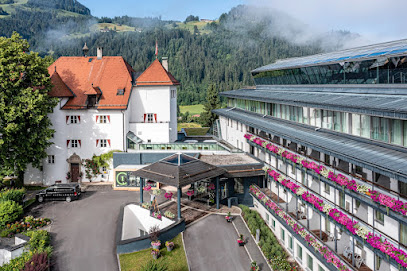
Gipfelhaus am Kitzbüheler Horn
Experience the best of alpine cuisine at Gipfelhaus am Kitzbüheler Horn, where breathtaking views meet delicious local flavors.
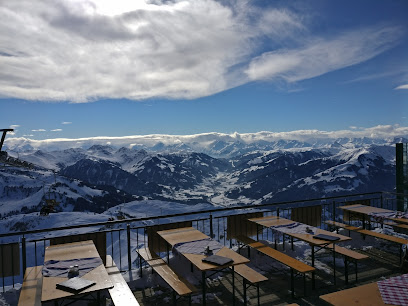
Badezentrum Aquarena Kitzbühel
Experience relaxation and family fun at Badezentrum Aquarena Kitzbühel, a premier public swimming pool in the heart of the Tyrolean Alps.
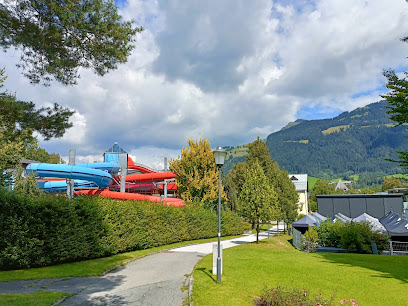
The Londoner Kitzbühel
Experience the warm ambiance and vibrant atmosphere of The Londoner Kitzbühel, a perfect bar to unwind after alpine adventures.
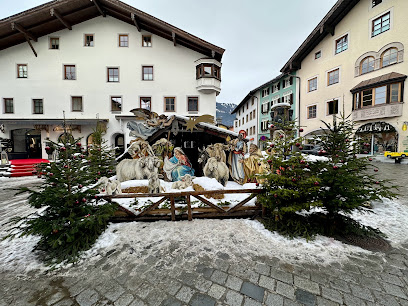
Kitzbühel Tourismus
Explore the beauty of Kitzbühel, a stunning alpine town in Austria, famous for skiing, hiking, and rich cultural experiences.
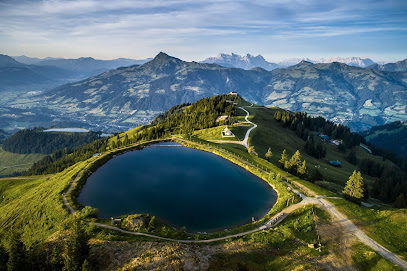
O'Flannigans Irish Pub
Discover the vibrant O'Flannigans Irish Pub in Kitzbühel, where great food, drinks, and live sports create an unforgettable atmosphere in the heart of the Alps.
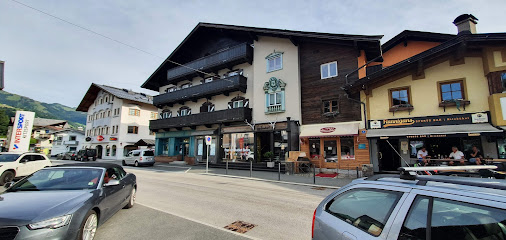
Vordergrub Landhotel-Wirtshaus
Discover the perfect blend of comfort and traditional Austrian cuisine at Vordergrub Landhotel-Wirtshaus in Kitzbühel's breathtaking Alps.
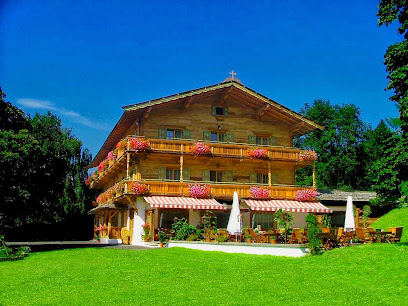
Streif-Wanderweg
Explore the breathtaking landscapes of the Streif-Wanderweg, a scenic hiking trail in Kitzbühel, Austria, perfect for nature lovers and outdoor adventurers.
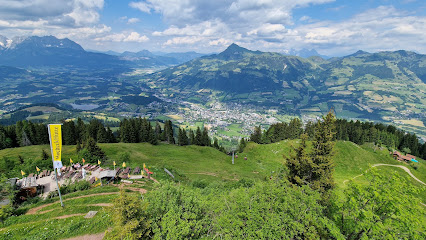
Pengelstein 1 Talstation Kitzbühel
Experience the breathtaking beauty and thrilling slopes of Pengelstein 1 Talstation, your gateway to adventure in the stunning Austrian Alps.
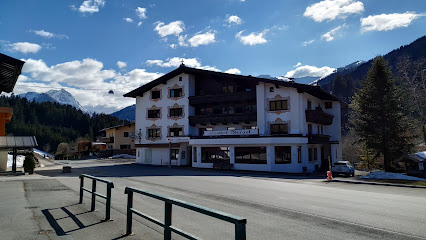
Waldbad Gieringer Weiher in Kitzbühel
Experience the serene beauty of Waldbad Gieringer Weiher, a stunning swimming lake in Kitzbühel, surrounded by nature and perfect for relaxation.
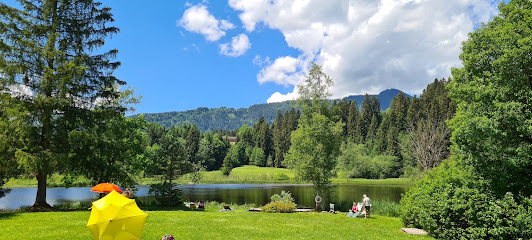
Unmissable attractions to see
Neues Schloss Herrenchiemsee
Explore the breathtaking Neues Schloss Herrenchiemsee, a stunning castle inspiring visitors with its opulent architecture and beautiful gardens in Bavaria.
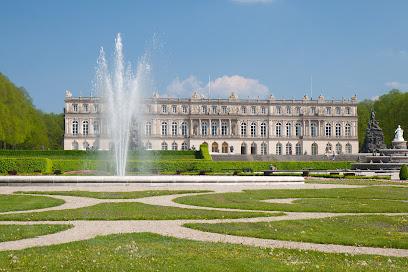
Krimml Waterfalls
Discover the breathtaking beauty of Krimml Waterfalls, Europe’s highest waterfalls, nestled in the heart of the Austrian Alps—an unforgettable natural wonder.
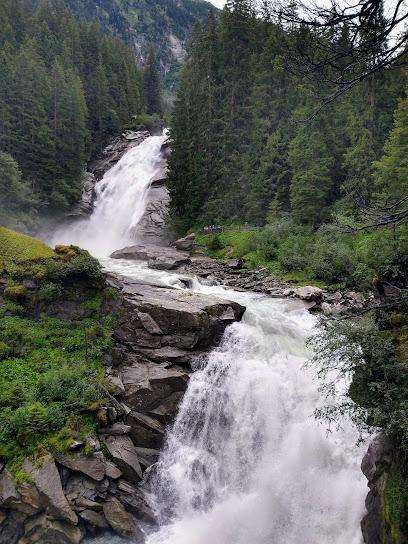
Kufstein Fortress
Explore the enchanting Kufstein Fortress, a historical treasure offering stunning views of the Alps and a rich cultural experience in Austria.
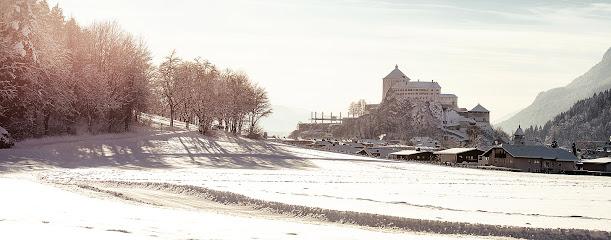
Pilgrimage Church of St. Bartholomew
Experience the breathtaking beauty and rich history of the Pilgrimage Church of St. Bartholomew on the shores of Lake Königssee, a true Bavarian gem.
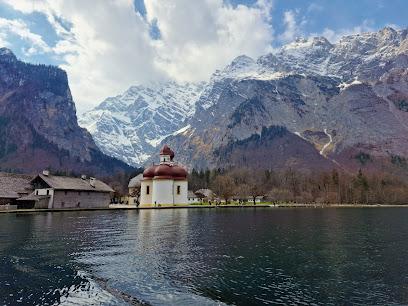
Kitzsteinhorn
Discover Kitzsteinhorn, a breathtaking mountain resort in Kaprun offering year-round skiing, hiking, and stunning alpine views for every adventure enthusiast.
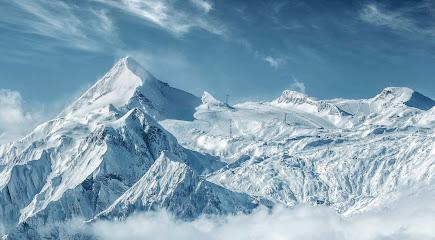
Königssee
Discover the pristine beauty of Königssee, a serene alpine lake in Bavaria, perfect for adventure and relaxation amidst stunning natural landscapes.
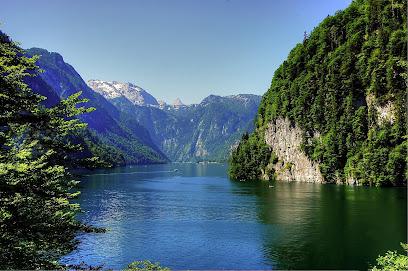
Chiemsee-shipping Ludwig Feßler KG
Explore the stunning Chiemsee lake with Chiemsee-shipping Ludwig Feßler KG, your gateway to Bavaria's breathtaking islands and rich history.
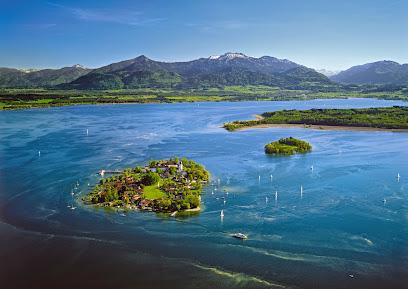
Zauberwald
Explore the serene beauty of Zauberwald, a stunning park in Ramsau bei Berchtesgaden, where nature and adventure await every visitor.
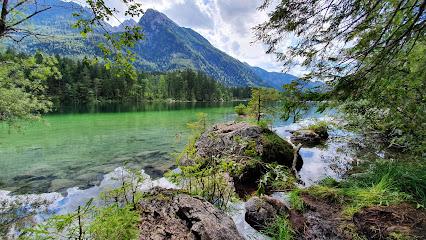
Schloss Tratzberg
Experience the allure of Schloss Tratzberg, a captivating castle in Tyrol, filled with history, stunning architecture, and breathtaking views.
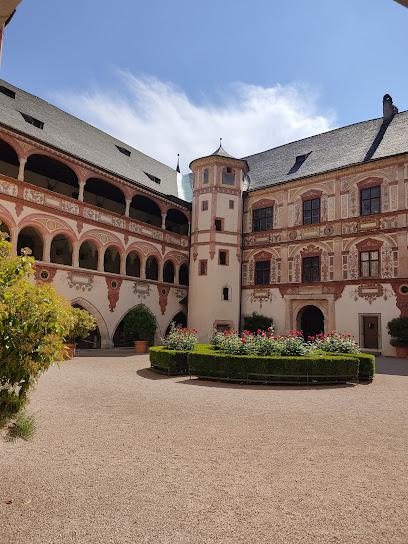
Frauenwörth Abbey in Chiemsee
Explore the serene Frauenwörth Abbey on Frauenchiemsee Island, a spiritual haven with rich history, stunning architecture, and tranquil gardens.
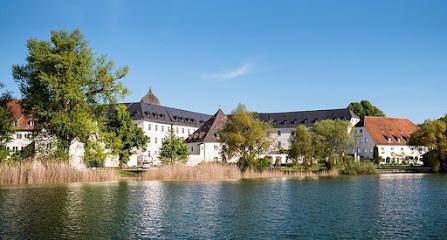
Hintersee
Experience the serene beauty of Hintersee, a breathtaking alpine lake in Ramsau bei Berchtesgaden, perfect for relaxation and outdoor adventures.
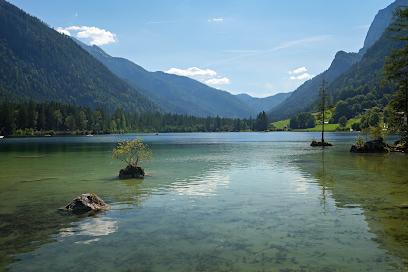
Kaprun Hochgebirgsstauseen
Explore the breathtaking Kaprun Hochgebirgsstauseen, where stunning alpine views and serene reservoirs await in the heart of Austria's natural beauty.
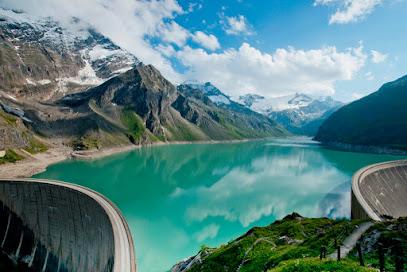
Spitzingsee
Experience the enchanting Spitzingsee, a stunning Bavarian lake perfect for outdoor adventures, relaxation, and breathtaking alpine views.
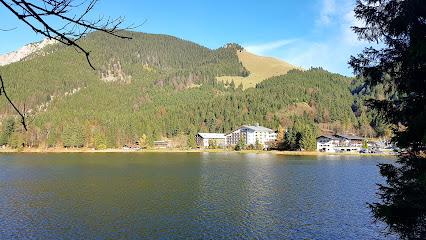
Burg Kaprun
Explore the majestic Burg Kaprun, a medieval castle rich in history, breathtaking views, and cultural experiences in the heart of Austria.
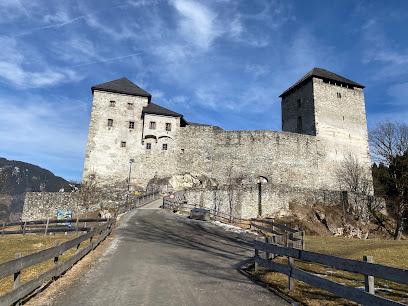
House of Mountains
Explore the captivating House of Mountains in Berchtesgaden, your essential hub for alpine adventures and natural wonders in the Bavarian Alps.
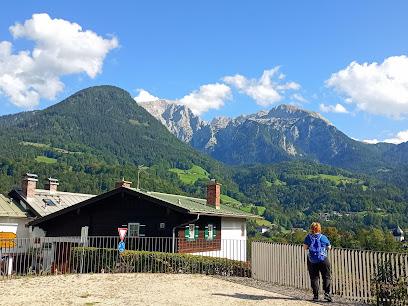
Essential places to dine
Rosi's Sonnbergstuben - Rosi's Alm Kitzbühel
Experience authentic Austrian cuisine at Rosi's Sonnbergstuben in Kitzbühel—where breathtaking views meet exceptional dining.
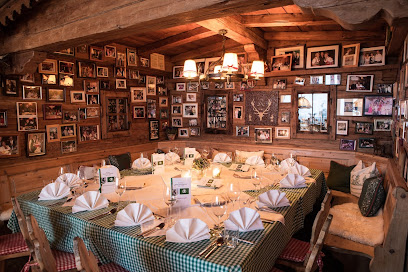
Huberbräu-Stüberl
Discover the taste of Austria at Huberbräu-Stüberl in Kitzbühel—where traditional cuisine meets warm hospitality.
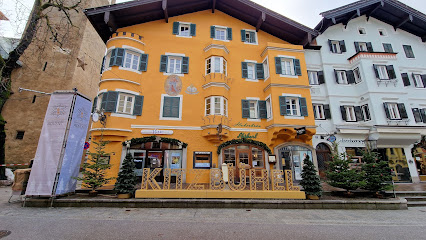
Restaurant Anna - Kitzbühler Genuss Restaurant
Experience authentic Austrian cuisine in the heart of Reith bei Kitzbühel at Restaurant Anna - where tradition meets innovation.
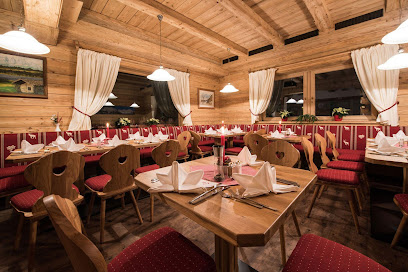
Gipfelhaus am Kitzbüheler Horn
Discover Gipfelhaus am Kitzbüheler Horn: An Alpine Restaurant Offering Stunning Views and Authentic Austrian Cuisine.
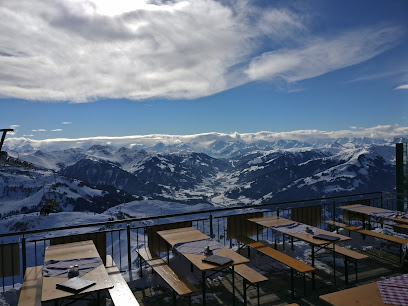
Restaurant Zinnkrug
Experience authentic Austrian cuisine at Restaurant Zinnkrug in Kitzbühel—where tradition meets modern culinary artistry amidst stunning alpine scenery.
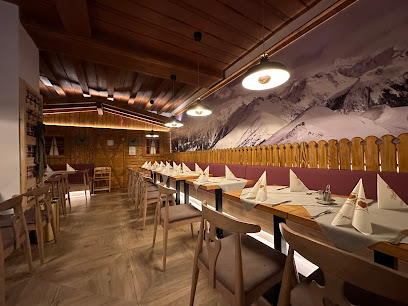
Seidlalm
Experience authentic Tyrolean cuisine at Seidlalm, where breathtaking mountain views meet delicious local flavors in Kitzbühel.
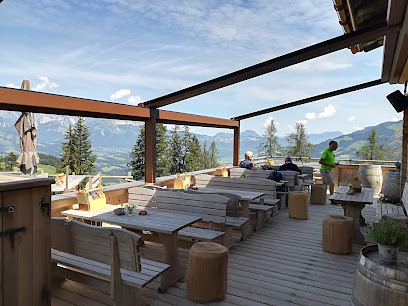
RISTORANTE PIZZERIA DON LUIGI
Experience authentic Italian flavors at Ristorante Pizzeria Don Luigi in Kitzbühel – where delicious food meets breathtaking alpine views.
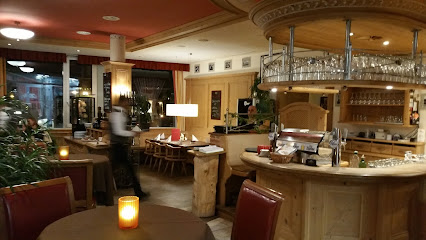
Hahnenkammstüberl
Experience authentic Tyrolean cuisine at Hahnenkammstüberl in Kitzbühel – a culinary delight surrounded by breathtaking Alpine views.
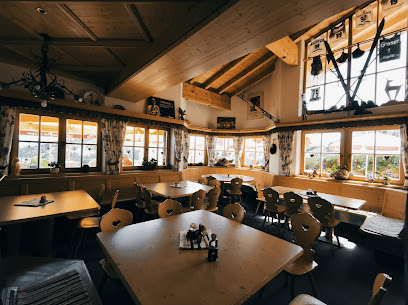
CENTRO cafe bar restaurant
Discover authentic Italian cuisine at CENTRO Cafe Bar Restaurant in Kitzbühel – where every dish tells a story amidst stunning alpine views.
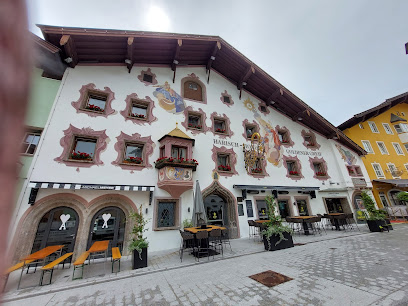
Berghaus Tirol
Experience authentic European dining at Berghaus Tirol amidst the breathtaking scenery of Kitzbühel.
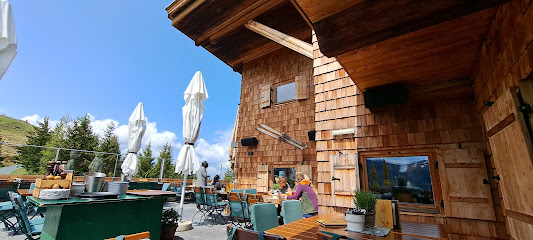
Mocking - Das Wirtshaus
Experience authentic Austrian cuisine at Mocking - Das Wirtshaus in Kitzbühel, where tradition meets taste in every delightful dish.

Berggasthof Hagstein
Discover the charm of Berggasthof Hagstein in Kitzbühel - where authentic Austrian cuisine meets breathtaking alpine views.
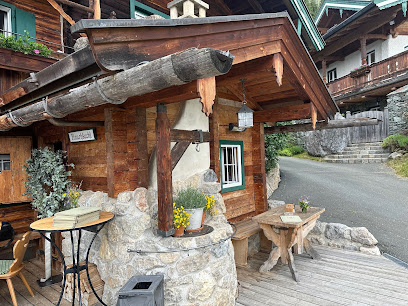
Restaurant Goldene Gams
Experience exquisite European cuisine in the heart of Kitzbühel at Restaurant Goldene Gams - where every meal is a celebration of flavor.
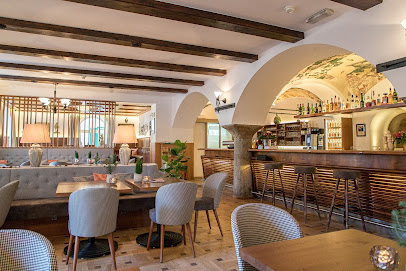
Pipino's Cafe-Restaurant-Lounge
Experience exquisite dining at Pipino's Cafe-Restaurant-Lounge in Kitzbühel - where tradition meets modern culinary art.
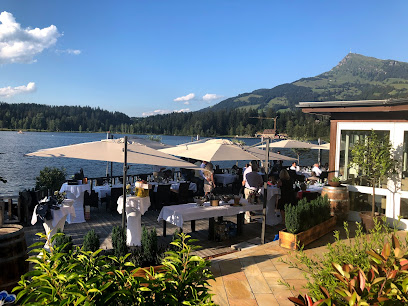
Restaurant Il Gusto
Discover authentic Italian flavors at Restaurant Il Gusto in Kitzbühel – where every dish tells a story.
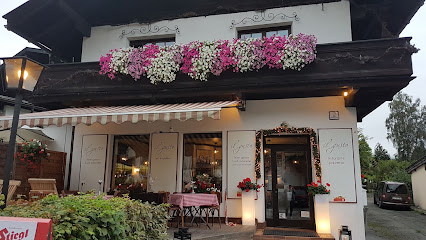
Markets, malls and hidden boutiques
Kitz Galleria
Discover Kitz Galleria in Kitzbühel, a charming department store offering a unique blend of shopping, dining, and alpine beauty.
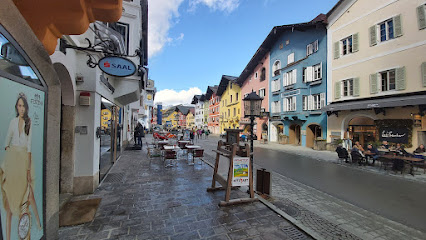
LOUIS VUITTON Kitzbühel
Explore luxury shopping at LOUIS VUITTON Kitzbühel, where elegance meets the stunning Alpine atmosphere, offering exclusive leather goods and fashion accessories.
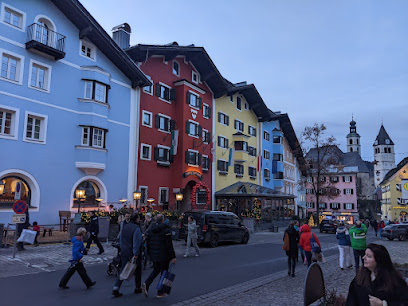
SPORTALM Store exclusive Kitzbühel
Explore the exclusive SPORTALM Store in Kitzbühel for premium sportswear and stylish clothing amidst stunning alpine beauty.
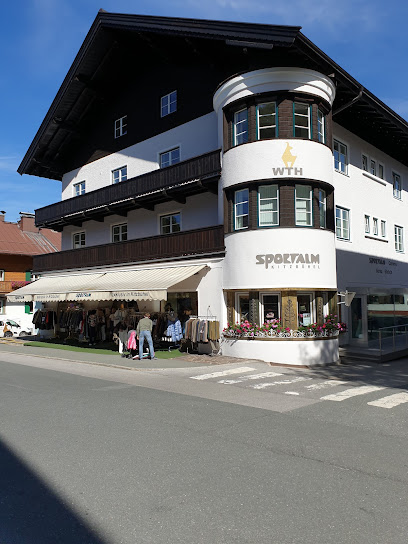
Frauenschuh
Discover the elegance and style of Frauenschuh, Kitzbühel's premier clothing store for men and women, reflecting alpine charm in every piece.
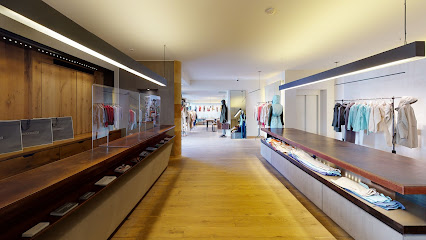
Moncler
Discover the elegance of Moncler in Kitzbühel, where alpine luxury meets high-end fashion for the discerning traveler.
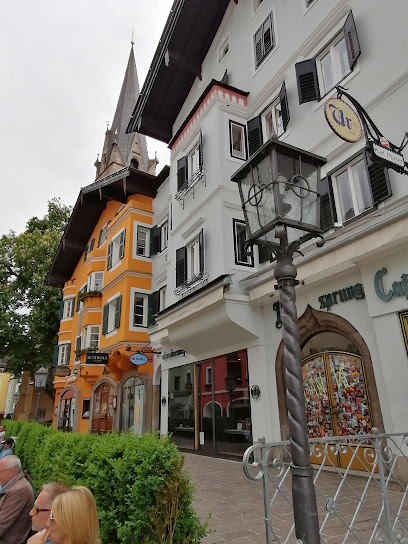
Kitz-Souvenir
Discover unique gifts and local treasures at Kitz-Souvenir, the perfect stop for souvenirs in the heart of Kitzbühel, Austria.
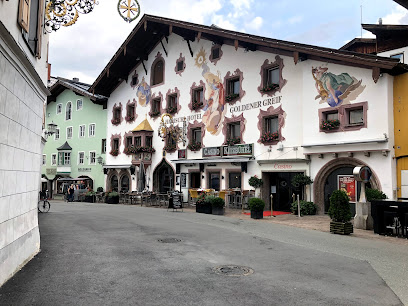
Superdry
Shop the latest trends at Superdry in Kitzbühel, where British style meets Japanese flair in a picturesque alpine setting.
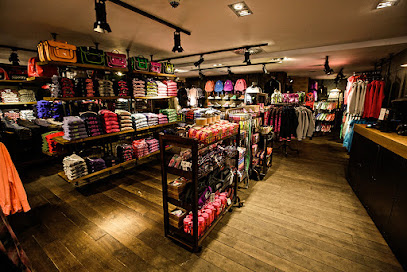
BOGNER Kitzbühel
Discover the luxury of alpine fashion at BOGNER Kitzbühel, where elegance meets functionality in a stunning boutique setting.
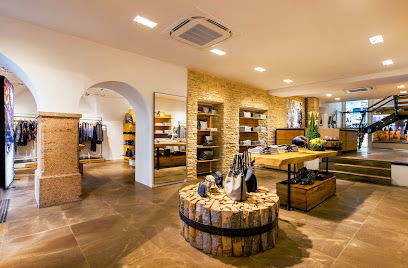
Michael Meyer Kitzbühel
Explore chic outerwear and fashion at Michael Meyer Kitzbühel, where style meets the stunning Alpine landscape.
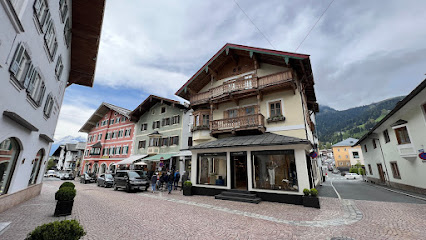
AIGNER Shop
Explore the elegance of Aigner Shop in Kitzbühel, where luxury leather goods meet timeless fashion for discerning shoppers.
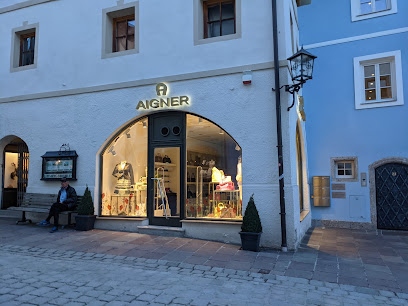
Luis Trenker Shop Kitzbühel
Explore the Luis Trenker Shop Kitzbühel for authentic alpine fashion, blending Tyrolean tradition with modern style in a breathtaking mountain setting.
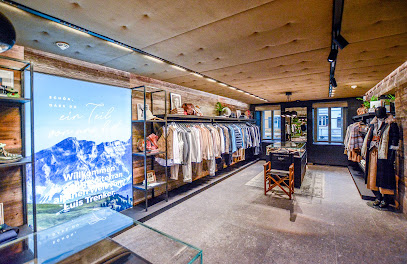
Frauenschuh Outlet Kitzbühel
Explore the elegant Frauenschuh Outlet in Kitzbühel for stylish men's and women's clothing, nestled in the heart of Austria's alpine beauty.
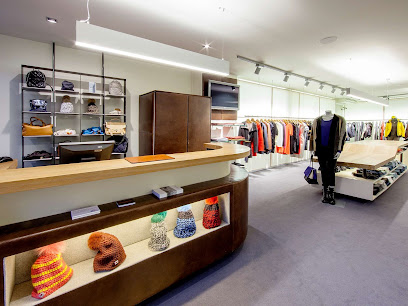
Peak Performance
Explore the best outdoor clothing at Peak Performance in Kitzbühel, where adventure meets style in the heart of the Austrian Alps.
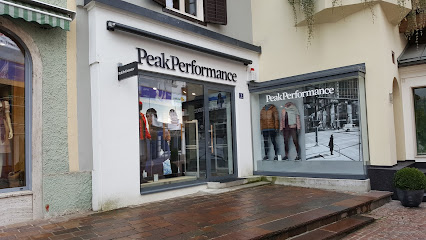
D!FFERENT | KITZBÜHEL
Discover unique fashion at D!FFERENT in Kitzbühel, where style meets the stunning beauty of the Austrian Alps.
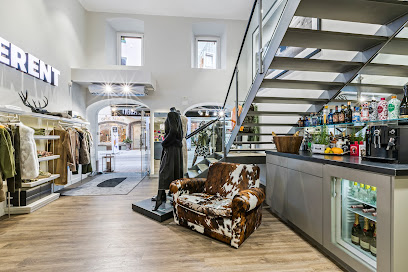
KJUS und KÄSTLE Brand Store Kitzbühel by Etz
Discover premium ski gear at KJUS und KÄSTLE Brand Store in Kitzbühel, your go-to destination for outdoor sports equipment and expert advice.
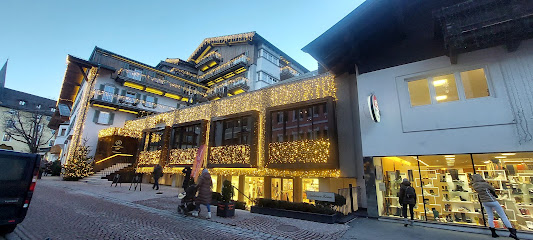
Essential bars & hidden hideouts
CENTRO cafe bar restaurant
Discover the flavors of Italy at CENTRO Cafe Bar Restaurant in Kitzbühel, where great food meets a vibrant atmosphere.
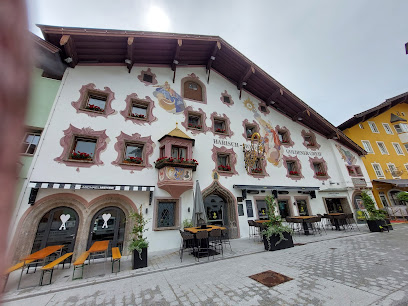
The Londoner Kitzbühel
Experience the vibrant atmosphere of The Londoner Kitzbühel, a charming bar offering a wide selection of drinks and local flavors in the heart of the Alps.
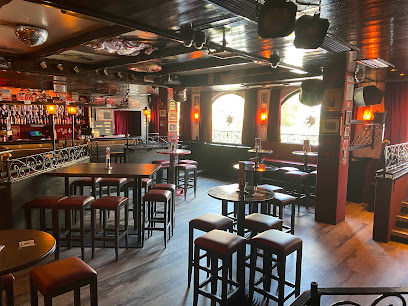
Pipino's Cafe-Restaurant-Lounge
Discover the perfect blend of local and international cuisine at Pipino's Cafe-Restaurant-Lounge in Kitzbühel, where every meal is a culinary adventure.
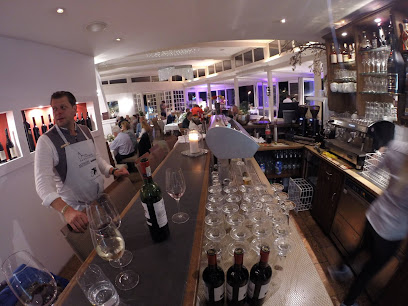
O'Flannigans Irish Pub
Discover the heart of Irish culture at O'Flannigans Irish Pub in Kitzbühel, where lively sports, hearty meals, and great company await.
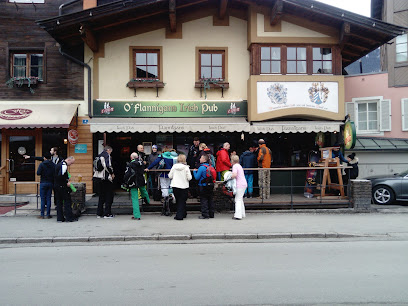
Jimmy's Dinner & Club
Delight in delectable tapas and experience the lively nightlife at Jimmy's Dinner & Club in Kitzbühel, a must-visit destination for tourists.
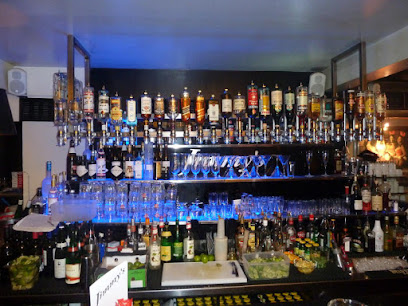
Restaurant/Bar Glockenspiel
Discover the heart of Kitzbühel at Restaurant/Bar Glockenspiel, where traditional Austrian flavors meet a lively atmosphere.
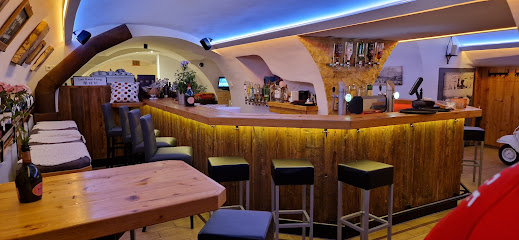
FÜNFERL – die BAR in Kitzbühel
Discover the vibrant nightlife of Kitzbühel at FÜNFERL, a premier bar offering a warm atmosphere and an extensive drink selection.
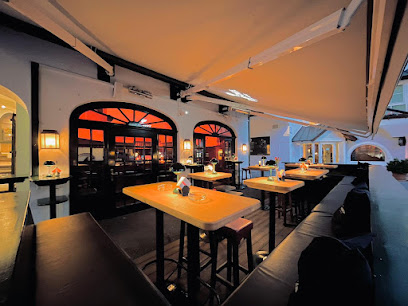
Eldorado Bar
Experience the vibrant nightlife of Kitzbühel at Eldorado Bar, your cozy retreat for drinks and socializing in the heart of the Alps.
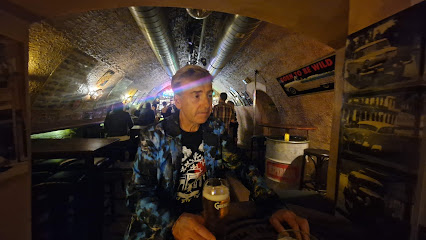
Club Take-Five
Discover the pulsating nightlife at Club Take-Five in Kitzbühel, where every night is a celebration of music, dance, and unforgettable memories.
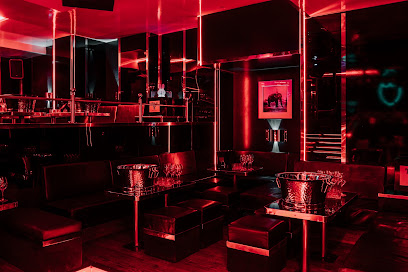
Leo HILLINGER Wineshop & Bar Kitzbuhel
Experience the best of Austrian wines in a charming bar setting at Leo HILLINGER Wineshop & Bar in Kitzbuhel.
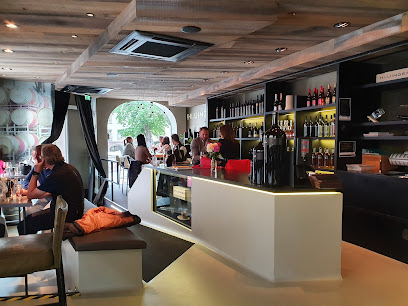
Woody's Stadelbar
Experience the heart of Kitzbühel at Woody's Stadelbar, where local culture meets a vibrant atmosphere and delicious drinks.
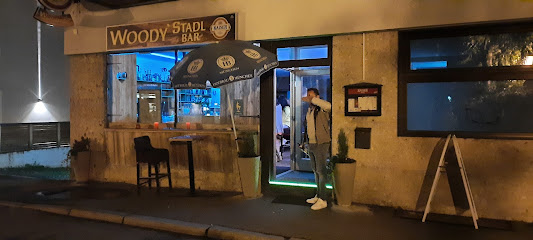
Reisch Bar
Discover the lively charm of Reisch Bar, a premier nightlife destination in Kitzbühel, Austria, where fun meets great music and delicious drinks.
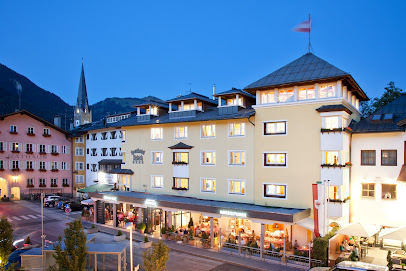
Lichtl Pub
Discover the lively ambiance and local charm at Lichtl Pub, your go-to bar in Kitzbühel for drinks and socializing.
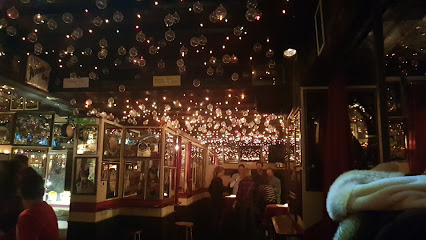
Hahnenkamm Pavillon
Experience the vibrant après-ski culture at Hahnenkamm Pavillon, Kitzbühel's top destination for relaxation and breathtaking mountain views.
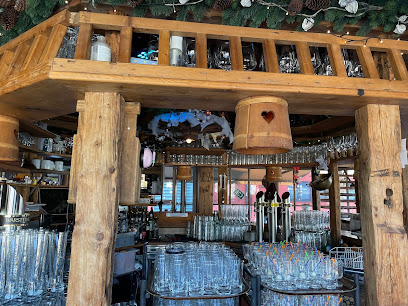
Local Phrases
-
- HelloServus
[Zer-voos] - GoodbyeAuf Wiedersehen
[Owf Vee-der-zay-en] - YesJa
[Ya] - NoNein
[Nine] - Please/You're welcomeBitte
[Bit-teh] - Thank youDanke
[Dank-eh] - Excuse me/SorryEntschuldigung
[Ent-shool-dee-gung] - How are you?Wie geht es Ihnen?
[Vee gayt es Een-en] - Fine. And you?Gut. Und dir?
[Goot. Oont deer] - Do you speak English?Sprechen Sie Englisch?
[Spre-khen Zee Eng-lish] - I don't understandIch verstehe nicht
[Ick fair-shtay-he nikt]
- HelloServus
-
- I'd like to see the menu, pleaseIch würde gerne die Speisekarte sehen, bitte
[Ick vur-deh gern-eh dee Shpy-ze-kart-a zay-en, bit-teh] - I don't eat meatIch esse kein Fleisch
[Ick ess-eh kine Fly-sh] - Cheers!Prost!
[Prohst] - I would like to pay, pleaseIch möchte bitte bezahlen
[Ick merkht-eh bit-teh bez-ah-len]
- I'd like to see the menu, pleaseIch würde gerne die Speisekarte sehen, bitte
-
- Help!Hilfe!
[Hil-fa] - Go away!Gehen Sie weg!
[Gay-en Zee vayg] - Call the Police!Rufen Sie die Polizei!
[Roof-en Zee dee Po-leet-sigh] - Call a doctor!Rufen Sie einen Arzt!
[Roof-en Zee i-nen Ahr-tst] - I'm lostIch habe mich verirrt
[Ick hah-buh meesh fair-eert] - I'm illIch bin krank
[Ick been krank]
- Help!Hilfe!
-
- I'd like to buy...Ich möchte kaufen...
[Ick merkht-eh kow-fen] - I'm just lookingIch schaue nur
[Ick sh-ow-eh noor] - How much is it?Wie viel kostet es?
[Vee feel kost-et es] - That's too expensiveDas ist zu teuer
[Dass ist tso toy-er] - Can you lower the price?Können Sie den Preis senken?
[K-ern-en Zee den Pry-s zank-en]
- I'd like to buy...Ich möchte kaufen...
-
- What time is it?Wie spät ist es?
[Vee shpayt ist es] - It's one o'clockEs ist ein Uhr
[Es ist iyn oor] - Half past (10)Halb (zehn)
[Hahlb (tsayn)] - MorningMorgen
[Mor-gen] - AfternoonNachmittag
[Nah-mit-tahg] - EveningAbend
[Ah-bent] - YesterdayGestern
[Ges-tern] - TodayHeute
[Hoy-teh] - TomorrowMorgen
[Mor-gen] - 1Eins
[Iyns] - 2Zwei
[Tzvey] - 3Drei
[Dray] - 4Vier
[Feer] - 5Fünf
[Foonf] - 6Sechs
[Zeks] - 7Sieben
[Zee-ben] - 8Acht
[Akht] - 9Neun
[Noy-n] - 10Zehn
[Tsayn]
- What time is it?Wie spät ist es?
-
- Where's a/the...?Wo ist ein/der...?
[Vo ist iyn/der] - What's the address?Wie lautet die Adresse?
[Vee loo-tet dee Ah-dres-seh] - Can you show me (on the map)?Können Sie mir das zeigen (auf der Karte)?
[K-ern-en Zee meer duss tsay-gen (owf der Car-teh)] - When's the next (bus)?Wann fährt der nächste (Bus)?
[Vann fairt der nakhs-teh (Boos)] - A ticket (to ....)Eine Fahrkarte (nach ....)
[Iyn-eh Fahr-kar-teh (nahkh)]
- Where's a/the...?Wo ist ein/der...?
History of Kitzbühel
-
Kitzbühel's history dates back to the Bronze Age, around 1100 BC, when the Illyrians first settled in the area. The name 'Kitzbühel' was first mentioned in a document from the Chiemsee monastery in the year 1165, where it was referred to as 'Chizbuhel'. The name is derived from 'Chizzo', a Bavarian clan leader, and 'Buhel', meaning hill.
-
In the 12th and 13th centuries, Kitzbühel flourished due to its strategic location on important trade routes. The town became known for its metal and mining industries, particularly the extraction of copper and silver. By the 14th century, Kitzbühel had grown into a prosperous market town with a well-fortified castle and walls.
-
In 1504, Kitzbühel came under the control of Emperor Maximilian I of the Habsburg dynasty. This marked the beginning of a period of stability and economic growth, as the town benefited from the protection and trade policies of the Habsburg Empire. During this time, Kitzbühel became known for its vibrant markets and fairs.
-
The 16th and 17th centuries saw significant religious and cultural developments in Kitzbühel. The town's parish church, St. Andreas, was renovated and expanded during this period. Religious art and architecture flourished, and the town became a center for Baroque culture in the region.
-
The 19th century brought significant changes to Kitzbühel. The town's economy shifted from mining to tourism, driven by the construction of the railway in 1875, which connected Kitzbühel to major cities like Innsbruck and Salzburg. This transformation laid the foundation for Kitzbühel's future as a premier tourist destination.
-
Kitzbühel's rise as a world-famous ski resort began in the early 20th century. The first ski club was established in 1902, and the Hahnenkamm mountain became a popular skiing destination. The annual Hahnenkamm Races, which started in 1931, are now one of the most prestigious events in the world of alpine skiing.
-
During World War II, Kitzbühel was occupied by German forces and served as a military base. The town suffered minimal damage compared to other regions, allowing it to recover quickly after the war. The post-war period saw a resurgence in tourism, with Kitzbühel re-establishing itself as a top ski resort and summer vacation spot.
-
Today, Kitzbühel is renowned for its blend of historic charm and modern amenities. The town successfully preserves its rich cultural heritage while offering luxury accommodations, fine dining, and world-class sports facilities. Kitzbühel continues to host major international events, attracting visitors from around the globe.
Kitzbühel Essentials
-
Kitzbühel is located in the Tyrol region of Austria. The nearest international airport is Innsbruck Airport, approximately 95 kilometers away. Salzburg Airport is another option, located about 80 kilometers from Kitzbühel. From these airports, you can take a train or rent a car to reach Kitzbühel. The Austrian Railway (ÖBB) provides regular train services to Kitzbühel from major cities like Vienna, Salzburg, and Innsbruck. If you prefer driving, the town is accessible via the A12 and B170 highways.
-
Kitzbühel is a compact town, making it easy to explore on foot or by bicycle. Local buses operated by VVT (Verkehrsverbund Tirol) provide convenient public transportation within the town and to nearby villages. Taxis are also readily available. If you wish to explore the surrounding alpine areas, renting a car is a convenient option. Kitzbühel's train station connects you to other parts of Austria and neighboring countries.
-
The official currency in Austria is the Euro (EUR). Credit cards are widely accepted in hotels, restaurants, and shops in Kitzbühel. However, it is advisable to carry some cash, especially for smaller establishments and local markets. ATMs are available throughout the town where you can withdraw cash using your debit or credit card.
-
Kitzbühel is generally a very safe destination for tourists. Violent crime is rare, but petty theft such as pickpocketing can occur in crowded areas. It is advisable to take standard precautions such as keeping your belongings secure and being aware of your surroundings, especially during busy events like the annual Hahnenkamm ski races. There are no specific high-crime areas targeting tourists.
-
In case of an emergency, dial 112 for immediate assistance. Kitzbühel has a local police station and medical facilities, including a hospital. It is recommended to have travel insurance that covers medical emergencies. Pharmacies are available in town for over-the-counter medications and minor health issues.
-
Fashion: Do dress appropriately for the weather, especially if engaging in outdoor activities. Smart casual attire is acceptable in most places. Avoid overly casual clothing in upscale restaurants. Religion: Do respect local customs and traditions, particularly in religious settings. Cover your head and shoulders when visiting churches. Public Transport: Do validate your ticket before boarding. Don't put your feet on seats or eat large meals on public transport. Greetings: Do greet people with a handshake and maintain eye contact. A friendly 'Grüß Gott' is a common greeting. Eating & Drinking: Do try local specialties like Tyrolean Gröstl and Käsespätzle. Don't rush through meals; dining is often a leisurely experience.
-
To experience Kitzbühel like a local, visit the weekly farmer's market to buy fresh produce and artisanal goods. Take a leisurely stroll through the charming old town with its medieval architecture. Engage with locals at traditional Austrian cafés and try Apfelstrudel or Sachertorte. For an authentic alpine experience, hike the scenic trails around the Kitzbüheler Horn and Hahnenkamm mountains. Winter sports enthusiasts should not miss the famous Hahnenkamm ski race held annually in January.
Trending Landmark in Kitzbühel
-
Bergbahn AG Kitzbühel - KitzSki
-
Wildpark Aurach
-
Alpenhaus Kitzbüheler Horn
-
A-ROSA Kitzbühel
-
Rosi's Sonnbergstuben - Rosi's Alm Kitzbühel
-
Lebenberg Schlosshotel-Kitzbühel
-
Gipfelhaus am Kitzbüheler Horn
-
Badezentrum Aquarena Kitzbühel
-
The Londoner Kitzbühel
-
Kitzbühel Tourismus
-
O'Flannigans Irish Pub
-
Vordergrub Landhotel-Wirtshaus
-
Streif-Wanderweg
-
Pengelstein 1 Talstation Kitzbühel
-
Waldbad Gieringer Weiher in Kitzbühel
Nearby Cities to Kitzbühel
-
Things To Do in Zell am See
-
Things To Do in Salzburg
-
Things To Do in Bad Gastein
-
Things To Do in Innsbruck
-
Things To Do in Hallstatt
-
Things To Do in Munich
-
Things To Do in Kranjska Gora
-
Things To Do in St. Anton am Arlberg
-
Things To Do in Linz
-
Things To Do in Klagenfurt
-
Things To Do in Bohinj
-
Things To Do in Bled
-
Things To Do in Nova Gorica
-
Things To Do in Bregenz
-
Things To Do in Dornbirn











